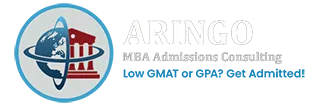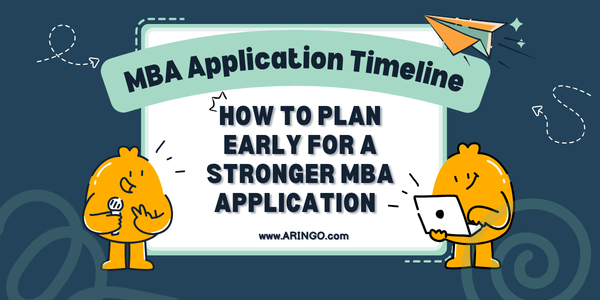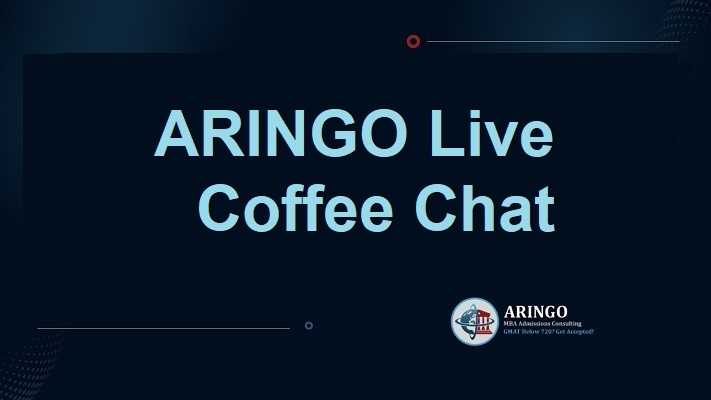Are you dreaming of an MBA from a top global school? The journey can seem daunting, with thousands of applications vying for a limited number of spots. Last year, the statistics were “insane” – only 16% of applicants made it into their desired programs! But don’t despair. We’re here to share some insider “advantages and hacks” to make your MBA application stand out. This post, based on a lively discussion with Jen T. from Aringo MBA Admissions Consulting, will arm you with the secrets you need to make your dreams a reality.
Let’s jump right into how you can “hack the MBA application”!
-
Deadlines and Early Bird Perks
Setting your timeline is crucial. While most programs kick off in the fall, some offer “early action” – a secret weapon for those looking for an edge. Schools like Virginia Darden, Duke Fuqua, Dartmouth Tuck, Georgetown McDonough, and Rotman might offer “additional consideration” for early submissions.
Here’s the lowdown:
- Binding vs. Non-Binding: Some early action programs, like UVA Darden’s, offer binding options (you commit if admitted) or non-binding choices (you’re interested but not locked in).
- Guaranteed Interviews: Dartmouth Tuck often guarantees an interview if you submit your application about 10-20 days ahead of the regular deadline. These are the “little secrets that aren’t published anywhere for you to be able to find!”
- Always Double-Check: Application cycles for Fall 2026 haven’t opened yet (they should later this month!). Always verify the latest details once applications are live, as things “might evolve.”
-
The Golden Ticket: Application Fee Waivers
Applying to MBA programs is pricey. Between exam costs ($200-$300) and application fees ($100-$200 per school), expenses add up. But here’s a hack: “If you can find waivers, this is absolutely the right place to be.”
- Attend School Events: Many schools offer fee waivers just for attending their admissions events. Stay until the end to grab that discount code!
- GMAT Club MBA Spotlight: GMAT Club hosts an MBA Spotlight twice a year (one coming up in June!). Many schools, even those that typically don’t offer waivers, provide them during this event. Admissions committees “want to give them a little bit of an incentive to apply to our school after they’ve met us.”
-
Letters of Recommendation (LORs): What They Really Want
LORs are often “out of your control,” but you can certainly influence them. The key is to “get them ready, prep them, have a meet with them, share with them your goals, or maybe even your past achievements so they have a whole picture before they go to write the letter of recommendation.”
- Common LOR: Did you know many schools accept a common letter of recommendation found on GMAC? This can be a huge time-saver!
- One LOR Wonders: Some top schools like MIT, Columbia Business School, and UC Berkeley (Haas) may only require one letter of recommendation. This can be a “relief” if you’re in a situation where securing two strong recommenders is challenging (e.g., a “sad buy” with a past employer!).
- USC Marshall’s Unique Approach: Fun fact: USC Marshall “requires zero letters of recommendation.” They believe they can understand your profile without it!
A smart hack is to set a deadline for your recommender about two weeks ahead of the actual MBA application deadline. This ensures everything is submitted on time, and your application is considered complete for the current round – “you’ll get moved to the next round which is just a bummer” otherwise!
-
Mastering the MBA Exam: GMAT, GRE, or Something Else?
The MBA exam can be “a lot of mental work.” The good news is that for the most part, the GMAT and GRE are “accepted equally across all MBA applications.”
- GMAT vs. GRE – The IB/MBB Caveat: If you’re eyeing MBB consulting or Investment Banking, recruiters might ask for your GMAT score. While not a deal-breaker, it’s something to consider, as admissions committees might wonder “how much research have they done?”
Try Both! The GMAT and GRE test differently. If the GMAT isn’t clicking, “maybe take a practice exam for the GRE.” Many have found this “little secret” to be a game-changer.
- Executive Assessment (EA): A Shorter Path? The EA is a “shorter, condensed version of the GMAT” originally for Executive MBAs, but now accepted by some traditional full-time programs, including Columbia Business School, NYU Stern, Duke (Fuqua), Georgetown McDonough, UCLA, and HEC Paris. If the GMAT/GRE is an “obstacle I can’t get through,” the EA could be an answer, but be aware it might limit your school options.
- Exam Waivers: The COVID Silver Lining: Over the past five years, especially during COVID, schools started offering waivers for exam scores. If you can demonstrate “quantitative readiness” through your work experience (e.g., daily work with large datasets, advising with metrics), you might not need an exam score. Top schools like Dartmouth Tuck, NYU Stern, UVA Darden, Michigan Ross, Cornell Johnson, Texas (McCombs), MIT, and UCLA have historically offered these. It’s a “great option” if you’re confident in your skills but short on time for test prep.
- English Proficiency – Duolingo is Your Friend: For international students, Duolingo has become “more widely accepted across schools, including M7” (Wharton, Kellogg, Chicago Booth, Harvard). And some schools (MIT, Columbia Business School, Yale SOM, Duke Fuqua, Oxford, RSM, IMD) don’t even require English proficiency, relying on other application components or interviews.
-
Proving Your Quant Skills Without a GMAT
If you’re seeking an exam waiver, how do you prove your quantitative prowess? It’s about telling your story!
- Highlight Daily Quant Work: If you work in marketing, finance, tech, or even sales, emphasize how you analyze metrics, work with data, quantify outcomes, and present insights to stakeholders.
- Leverage Academic Performance: Your undergraduate academic performance, especially in quantitative classes, can also support your case.
- They’re Not Giving Them Away “Willy-Nilly”: Admissions committees use historical data to assess candidates with similar backgrounds who have performed well in their programs. They’re making an informed decision about your readiness.
-
Choosing Your MBA Program: Beyond the Traditional Fall Start
While the traditional two-year fall-start MBA is common, there are other exciting options:
- J-Term Programs (January Start): Schools like Columbia Business School, York Schulich, Ivey, INSEAD, HEC Paris, and Rotterdam offer January start dates. This is a great option if you’re ready to apply sooner rather than later and have your GMAT, LORs, and school list ready.
Specialty MBAs:
- Tech MBAs: Columbia Business School, NYU Stern, Cornell Johnson, and IE offer one-to-one-and-a-half-year programs tailored for tech-focused careers. These often have high employment rates and might even offer “waivers for test scores.”
- FinTech MBAs: If you’re into finance and technology, this specialized program could be a “really great option for you.”
- Senior MBA Programs: For mid-career professionals (8+ years of work experience), programs like Stanford MSx, MIT Sloan Fellows, and LBS Sloan Fellows offer career assistance tailored for senior-level outcomes. These are designed “just for you.”
- Dual Degrees: Programs like MIT’s LGO (engineering + MBA), Wharton Lauder (international experience + MBA), and Harvard Kennedy School offer specialized dual degrees that can make your candidacy “even stronger” if they align with your goals. However, avoid applying to a specialty program just to “get in through a back door” if it doesn’t genuinely fit your experience.
-
Networking: Your Application’s Secret Weapon
“Doing your networking and your research on a school will pay dividends because the school wants to know that they’re your number one choice.”
- Talk to Current Students: Connect with students who have similar backgrounds or career goals. Look for them on LinkedIn or through specific student clubs (Product Management, Consulting, Finance, Entrepreneurship, and “a thousand more!”).
- Track Conversations: “Track your conversations” because schools like Columbia might ask “who you spoke with or what events you’ve attended.” Don’t leave this blank!
- Student Endorsements: Building strong bonds with current students can lead to endorsements at schools like Booth, Kellogg, Fuqua, Yale, and Cornell. These can “really push the admissions committee over the edge.”
- Diversity & Affinity Groups: Explore groups like Reaching Out MBA (for LGBTQ+ candidates) or the Forte Foundation (for women in business). These offer support, community, and often “the ability to have waivers for the application fees” or scholarships.
- Connect and Illustrate: When reaching out, have a “point of conversation” – something specific you want to learn. Later, you can use these insights in your essays to show your deep research and why that specific school is a “great fit for me.”
Your Next Steps to MBA Success
- Strategize: “Decide on your plan” – whether it’s early decision, Round 1, or considering backup options.
- Research Deeply: Explore the school’s unique characteristics, curriculum, teaching methods (e.g., Booth’s case method, HBS’s case method), and specializations. Integrate this into your application to show you’ve “done the research.”
- Show Your Impact: Highlight your achievements in your job and “what you’ve done extracurricularly.” Even a hobby like marathon running can demonstrate goal-setting and commitment. This is where Aringo can truly excel in helping you present your best self.
- Execute & Accountable: “Just do it!” Don’t let doubt creep in. The process is tough, but having an MBA admissions consultant, an alumni mentor, or a friend to “hold you accountable” can make all the difference.
Frequently Asked Questions
- How many schools should I apply to? Typically, 5-7 is a good target.
- Should I take a work break for the application? Generally, “no.” Admissions committees compare you to others working full-time. Unless absolutely necessary due to extreme work hours, avoid adding a “speed bump” to your profile.
- Do big company names (EY, Bain) have an edge? While desirable for school statistics, it’s ultimately “up to you to deliver the burden of proof” of your substantial accomplishments and impact, regardless of company size. Small companies and startups offer invaluable hands-on experience that others might not have.
- What about older candidates (30+)? Senior MBA programs and Executive MBA programs are excellent options. For two-year programs, you need a “very plausible employment plan afterwards” if you’re making a career pivot. Consulting and IB might be less likely, but there are always exceptions.
Ready to turn your MBA dreams into reality?
Don’t leave your MBA application to chance. Register with us for a free profile evaluation! Let us help you navigate the complexities and unlock your full potential for the Fall 2026 intake.





